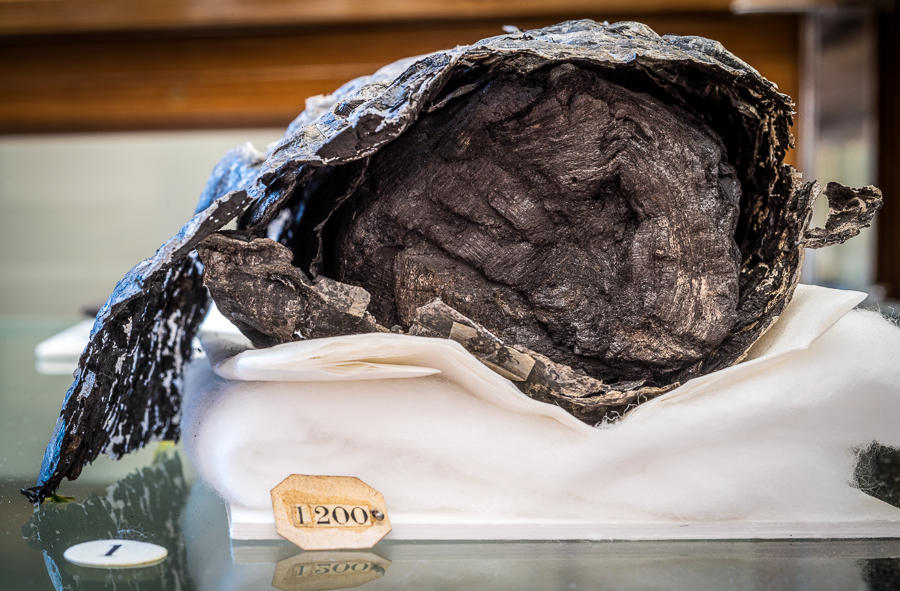Ancient Roman papyri, Papyri Collection, Victor Emmanuel III National Library, Naples, Italy, 2018
This was a rare example of "bibliocide" in which the destruction of the book preserved it. Papyri are the delicate remains of ancient Greek and Roman scrolls written on papyrus. These scrolls were carbonized by extreme heat from the volcanic ash that buried them in the eruption of Mount Vesuvius in 79 CE. Discovered in 1752 in what is now called the House of Papyri in nearby Herculaneum, the contents of these scrolls had remained a mystery for several centuries. The site was the only complete library recovered from the ancient world, and the National Library of Naples is the primary repository of these excavations. Faint traces of the ink lettering survived the catastrophe, and, while we were visiting, we saw researchers using a new laser and x-ray technology developed by NASA to read both sides of these extremely fragile and easily broken carbonized scrolls.

